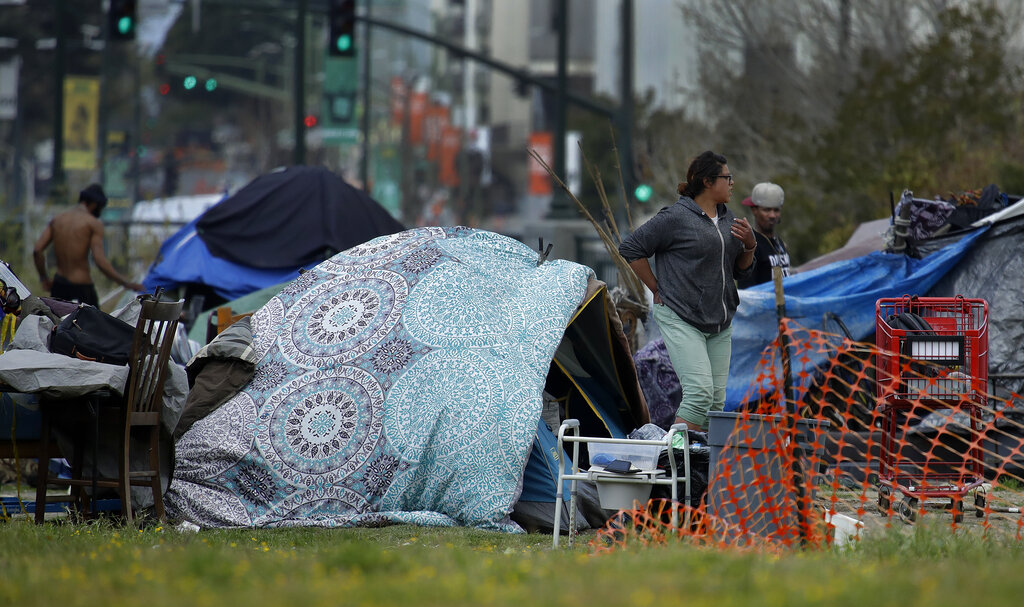In a resolute stride towards mitigating the surging homelessness dilemma in the state, Governor Gavin Newsom has decreed the dismantling of homeless encampments throughout California. On July 25, 2024, Newsom enacted an executive order compelling the removal of these settlements—a maneuver that has ignited substantial discourse and elicited a spectrum of reactions from involved parties, especially in the wake of a recent Supreme Court verdict.
“There are simply no more excuses. It’s time for everyone to do their part.”
— Gavin Newsom

The Executive Mandate: Ramifications and Execution
Governor Newsom’s executive mandate instructs state bodies to expediently clear homeless encampments while simultaneously offering vital assistance and resources to those displaced. This strategy transcends mere eviction; it encompasses stipulations to ensure the procedure is conducted with respect for the dignity and safety of the affected individuals.
The order necessitates the formulation of lucid protocols to oversee the deconstruction of these camps.
The recent Supreme Court decision has been instrumental, endowing local authorities with amplified powers to eliminate such encampments. This judicial endorsement has furnished California with the impetus to confront the health and safety perils associated with expansive camps, thereby buttressing the state’s rejuvenated strategy.

Divergent Responses: Endorsement and Opposition
While the executive order aspires to alleviate the palpable crisis on the streets, it has kindled a blend of endorsement and dissent. Advocates posit that this measure is a pivotal stride towards enhancing public health and safety.
San Francisco Mayor London Breed highlighted the city’s persistent endeavors to manage homelessness, underscoring that proactive measures have culminated in a noteworthy diminution of street encampments. As Breed’s spokesperson articulated,
“Our teams are out every day working to bring people indoors and clean up the streets.”

Conversely, detractors, notably homeless advocates, perceive the order as a punitive tactic that detracts from foundational issues like the acute scarcity of affordable housing. Eric Tars, Senior Policy Director of the National Homelessness Law Center, contended,
“The order itself is an attempt to misdirect attention away from the people who are responsible for that affordable housing crisis.”
Commitment to Support and Prospective Trajectories
The state has pledged to furnish support to those dislocated by the deconstruction of the camps, ensuring they are linked to local housing alternatives and service providers.
The Department of Transportation, which has already supervised the eradication of over 11,000 camps in preceding years, will persist in steering these initiatives. This encompasses the meticulous collection, labeling, and storage of personal belongings for a minimum of 60 days, granting individuals an opportunity to reclaim their possessions.
| Initiative | Allocation |
|---|---|
| Combating Homelessness | $24 Billion |
| Shelter Beds & Supportive Housing | Funded |
| Camps Removed by Dept. of Transportation | 11,000+ |
Since Governor Newsom‘s inauguration, California has earmarked upwards of $24 billion towards combating homelessness, with capital funneled into the genesis of shelter beds, supportive housing, and other ventures aimed at diminishing the state’s homeless populace.

In spite of these endeavors, California confronts the formidable challenge of accommodating an estimated 181,000 individuals who are homeless on any given night, cementing its status as the state with the largest homeless population nationwide.
a Fresh Chapter in California’s Homelessness Strategy
The deconstruction of homeless encampments under Governor Gavin Newsom’s stewardship signifies a momentous transition in California’s methodology towards homelessness.
While the initiative endeavors to tackle immediate health and safety apprehensions, its eventual triumph will hinge predominantly on the efficacious delivery of long-term housing resolutions and support services. The evolution of these developments is poised to incite persistent debate and examination, underscoring the intricate essence of homelessness in California.



